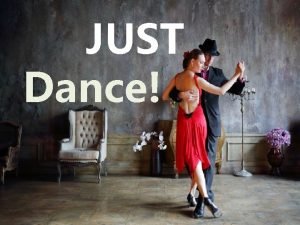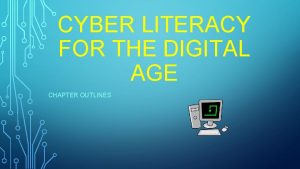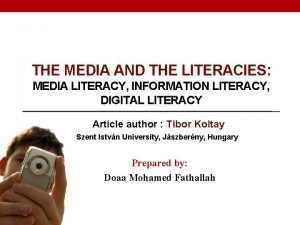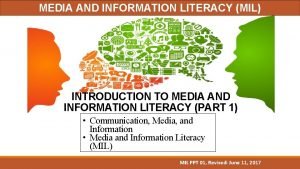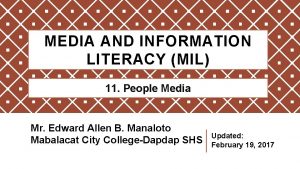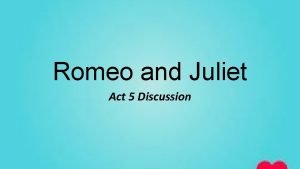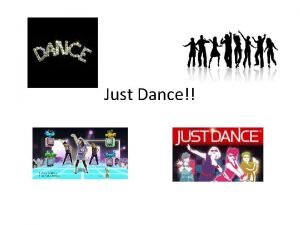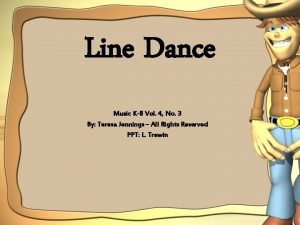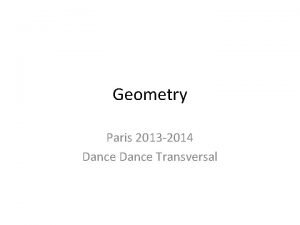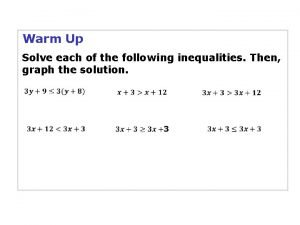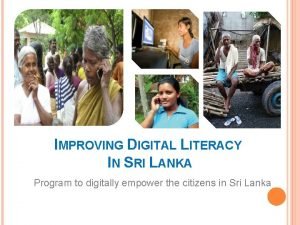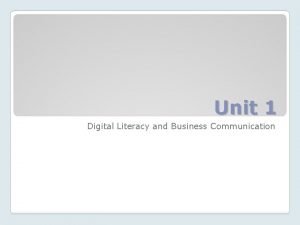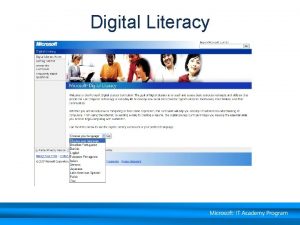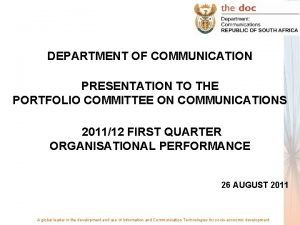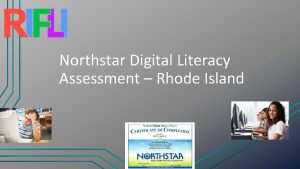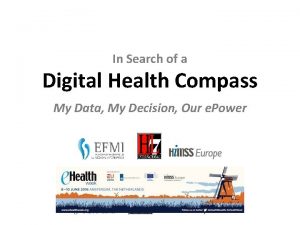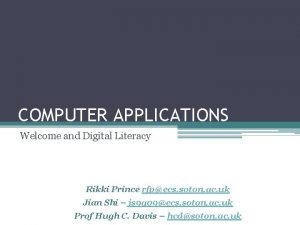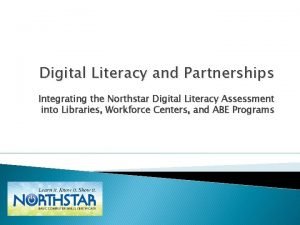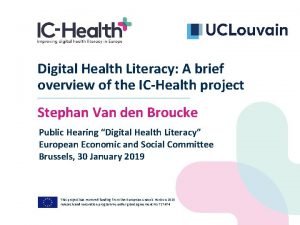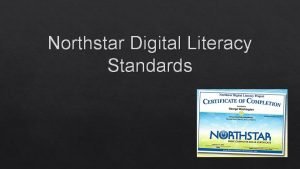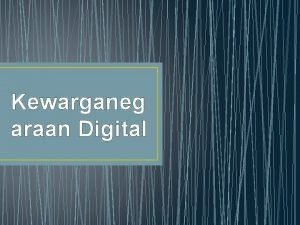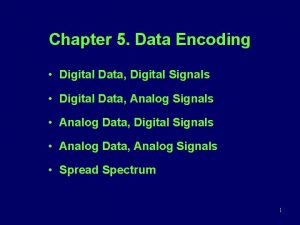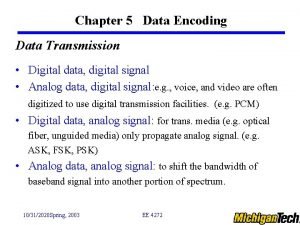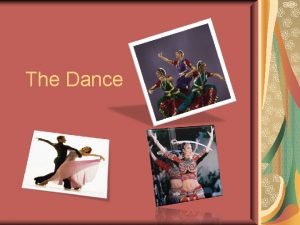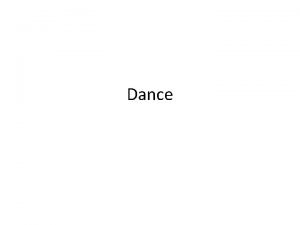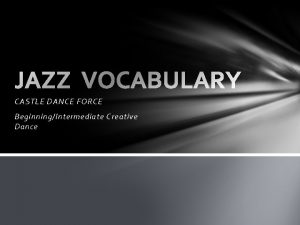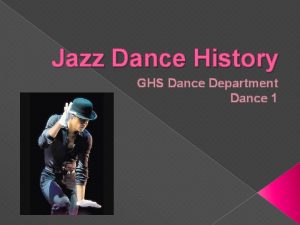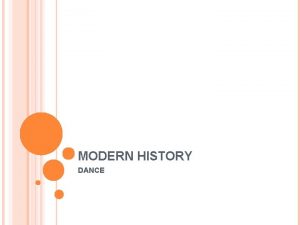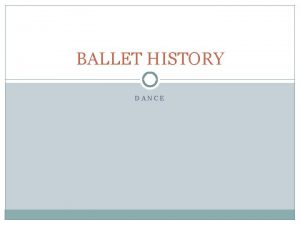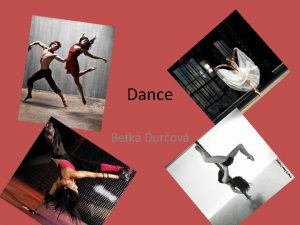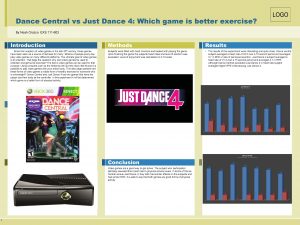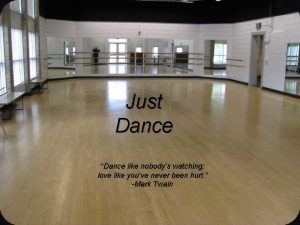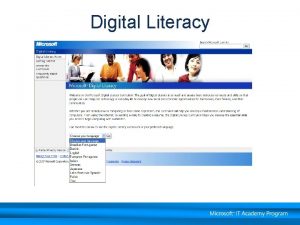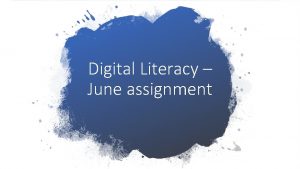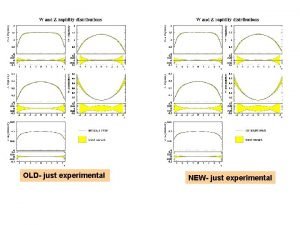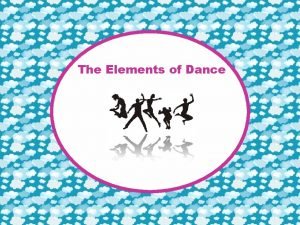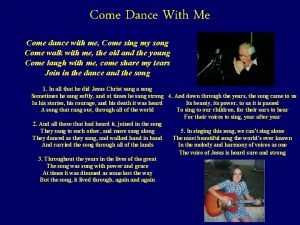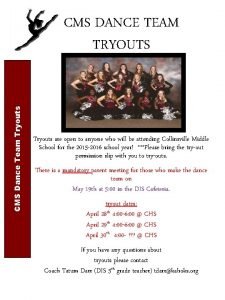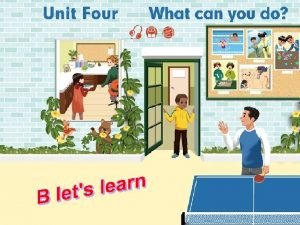Just dance with digital literacy Christine Oughtred christine

























- Slides: 25

‘Just dance ’ with digital literacy Christine Oughtred christine. oughtred@deakin. edu. au Sabina Robertson sabina. robertson@Deakin. edu. au

Learning the dance at Deakin University Library • Getting Fit digital literacy concept, contexts and Deakin University definition • First Steps Building liaison librarian capacity to develop the digitally literate student • Practicing a case study and results from one unit • Dance Finale Conclusion

Getting Fit for the Dance Digital literacy concept, contexts and Deakin University definition

“…Digital Competence has been acknowledged as one of the 8 key competences for Lifelong Learning by the European Union. Digital Competence can be broadly defined as the confident, critical and creative use of ICT to achieve goals related to work, employability, learning, leisure, inclusion and/or participation in society…. European Union Parliament 2006

“We now live in a global, connected world with a digital economy influencing every aspect of our lives. Competition and accelerating expectations mean that students rightly expect a premium learning experience that will prepare them for life and careers in a rapidly changing world” Jane den Hollander, Vice Chancellor, Deakin University

2012: Deakin University launched LIVE the future: Agenda 2020 Major review of existing course structures to ensure that all courses would develop eight mandatory Graduate Learning Outcomes The Library was given the responsibility for building a university-wide understanding of Digital Literacy

Deakin University defines Digital Literacy as “using technologies to find, use and disseminate information” Elements of Digital Literacy

First steps of the dance building liaison librarian capacity to develop the digitally literate student

Liaison librarians: • Discuss the Library’s Digital Literacy Framework with academics and colleagues • Use the Digital Literacy Framework to inform Unit program development • Deliver presentations and develop learning activities to different student cohorts, levels and abilities within classes and seminars.

Liaison librarian capacity building: Monthly training sessions: • creating scripts and storyboards for videos • foundations of Digital Literacy • strategies for developing conversation with academics about Digital Literacy • online learning theories and pedagogy and use of learning and teaching apps • learning activity, “Assessing the reliability and accuracy of information”

Developing the digitally literate student “students, particularly undergraduate students, employ ‘cognitive economy and satisficing in information seeking” (Warwick, 2009) ‘’Helping students recognize that some tasks require more careful, methodical research and thinking…initiates students into an authentic view of research“ (Ostenson, 2014)

Practicing the Dance A case study and results from one unit

Communicating Science teaching team and library staff shared purpose: to motivate and enable students to better assess information which is freely available on the web Learning Outcomes: • Be aware that information on the web comes with a range of accuracy and reliability • Develop criteria for assessing accuracy and reliability of information • Use these criteria to critically assess the accuracy and reliability of a range of web based information • Communicate judgements of accuracy and reliability

As long as the website is set out in a way that looks kinda modern, like they know what they’re doing, or paid someone to do it for them, you kinda trust it” (Communicating Science student, 2014)

The teaching program consisted of: • A class: led by Library staff focussing on assessing the credibility of sources as an integral skill of Digital Literacy • Three seminar activities during which groups of students: o examine a website with scientific content for information which could not be verified directly from the site o develop a decision making process (decision tree or similar) to assess OERs for accuracy and reliability o apply this process to a different website • The group assessment: a ‘Media Watch’ style video communicating the analysis

Evaluation section of the assessment rubric: ‘perform a powerful, credible and persuasive review of the accuracy and reliability of claims made by the source’. • Correlates to the proficient, rather than foundation level standard of the Deakin University Digital Literacy Framework for the term ‘Use: Think critically and analyse’. • Eighty five per cent of groups, after completing this task in their first few weeks of university, achieved credit or above for this skill.

Results and Feedback Tutor response: “the students were really seeing that this had changed the way they were thinking about using the internet and their sources” Student response: “We can go and do our research and know what’s right, not because we’re science students but because we know how to look at websites now’.

Key elements for success • Reinforcement of judging accuracy and reliability – class, seminar and assessment This included development of critical thinking skills through seminar activity and discussions Harris, L n. d. , Teacher talking to students in class, photograph, retrieved 24 November 2014, Science Photo Library database “the practice of doing it over and over it’s like burnt into our brains now, I can’t look at a website without looking for references or the author or stuff like that”

• Relevance to unit content “It’s a perfect segway into the next thing we’re doing which is looking at scientific papers, it makes sense to do all of this stuff straight away before we do anything else”.

• Creative and practical seminar task Tutor: “ I think the activity, the decision tree, was good in that they actually got to handle and interact with it as opposed to listening to us reiterate a checkpoint…the creative (element) was fun” Student: “it was more interesting doing it as a video … rather than coming into class and having to look at one and than do a test on it

• Collaborative experience of working in a group Student: “Yeah it was good to see other people also doing it, so you’re kinda like oh, that’s a good way to think about it, I didn’t think how to do it that way”

Challenge based learning activities engage students in developing the higher order skills of evaluation and critical thinking. Collaborating on this activity has given us the confidence to embrace an experience first, active and creative approach to other digital literacy learning activities.

Dance Finale

Libraries in the Higher Education sector need to seize the opportunities to partner with academics to prepare students for the complex and dazzling 21 st Century digital world. There are unparalleled opportunities for Liaison Librarians to fully engage with academics in designing authentic digital literacy learning activities and assessment tasks. The new collaborative relationships are not only changing academic perceptions of librarians’ skills and knowledge that they bring to curriculum redesign but also students’ perceptions of the Library and librarians.

Thank you Christine Oughtred, Manager Digital Literacy Programs Sabina Robertson, Manager Faculty of Arts and Education Library Services christine. oughtred@deakin. edu. au sabina. robertson@deakin. edu. au/library/ facebook. com/deakinlibrary twitter. com/deakinlibrary
 Cm9iysdxagc -site:youtube.com
Cm9iysdxagc -site:youtube.com We're gonna dance to one song
We're gonna dance to one song Cyber literacy for the digital age
Cyber literacy for the digital age Media literacy and information literacy similarities
Media literacy and information literacy similarities Mil venn diagram
Mil venn diagram 11 mil
11 mil Who is the first person to arrive at juliet's tomb
Who is the first person to arrive at juliet's tomb Warm up just dance
Warm up just dance Cha che slide
Cha che slide Everybody dance and sing line dance
Everybody dance and sing line dance Geometry bell ringers
Geometry bell ringers Inequalities warm up
Inequalities warm up Digital literacy in sri lanka 2021
Digital literacy in sri lanka 2021 Unit 1 digital literacy
Unit 1 digital literacy Digital literacy standard curriculum version 4
Digital literacy standard curriculum version 4 Nemisa dbe digital literacy application
Nemisa dbe digital literacy application Northstar digital literacy assessment
Northstar digital literacy assessment Digital literacy
Digital literacy Sussed blackboard
Sussed blackboard Northstar digital literacy
Northstar digital literacy Digital health literacy
Digital health literacy Www.digitalliteracyassessment.org
Www.digitalliteracyassessment.org Apa pengertian warga digital
Apa pengertian warga digital Digital market and digital goods
Digital market and digital goods Digital data digital signals
Digital data digital signals Data encoding and modulation
Data encoding and modulation
